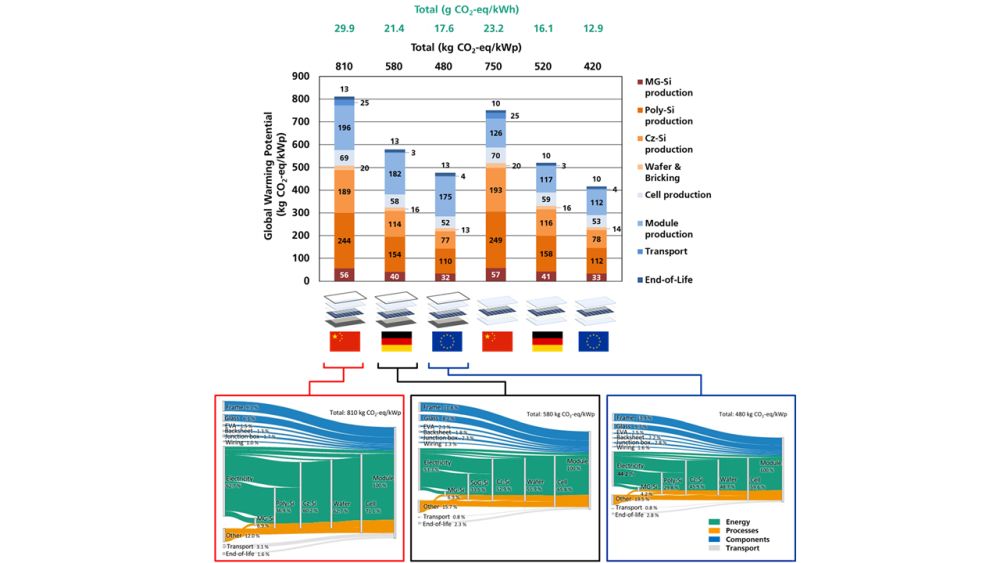| Duration: | 06/2023 - 05/2026 |
| Contracting Authority/ Sponsors: | German Federal Ministry of Economic Affairs and Climate Action (BMWK) |
| Project Partners: | Fraunhofer CSP-ISE, Fraunhofer CSP-IMWS, TH Köln, Solarwatt GmbH, Glasmanufaktur Brandenburg GmbH, EXXERGY GmbH, LuxChemtech GmbH, Reiling GmbH & Co. KG, Ulbrich of Austria GmbH, Heckert Solar GmbH, aleo solar GmbH |
| Project Focus: |
GreenSolarModules
Strengthening the German PV Industry for Effective Implementation of the Ecodesign Regulation and the EU Energy Label

Up to now, the decision to buy solar modules has mainly been driven by price. Evaluation criteria such as recyclability, CO2 emissions during production or the avoidance of environmentally harmful substances play a subordinate role in the purchasing decision. For this reason, an ecodesign regulation with an associated energy label for solar modules is being prepared at EU level and is due to come into force in 2024 [i, ii]. The customer is to receive information on the sustainability of the solar module. In addition, solar modules that exceed certain limits are to be kept off the market.
The aim of the research project is to develop and demonstrate on a production scale sustainable solar modules, manufacturing and recycling processes that meet the planned EU regulation on ecodesign and energy labeling to an above-average degree. In particular, the following sustainability features will be developed:
1. recyclability and use of secondary raw materials,
2. low material and energy consumption in module production,
3. avoidance of environmentally harmful substances,
4. reparability of the solar module,
5. increase in annual energy yield and module reliability (degradation rate, service life, failure).
The material and solar module developments are evaluated holistically with a life cycle analysis. The aim is to achieve a CO2 footprint of less than 20 g CO2eq/kWh and to identify concepts that eliminate the need for lead, antimony and fluorine in the module at the same cost, enable recycling as a secondary raw material, allow the bypass diodes to be repaired and have low degradation and a long service life.
[i] N. Dodd, N. Espinosa, Solar Photovoltaic Modules, Inverters and Systems: Options and Feasibility of EU Ecolabel and Green Public Procurement Criteria, JRC Technical Report, JRC122430, EUR 30474 EN, ISBN 978-92-76-26819-2, ISSN 1831-9424, doi:10.2760/29743, https://ec.europa.eu/jrc (2021)
[ii] Expert Input Paper - Eco Design and Energy Labeling for Photovoltaic Modules, Inverter and Systems in the EU, ETIP PV, SolarPower Europe, PVthin, European Solar Manufacturing Council, IECRE, www.etip-pv.eu (2021)